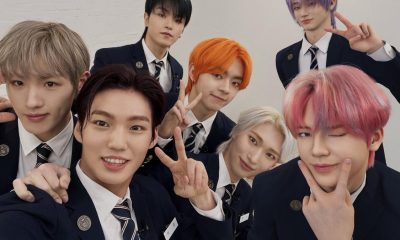
The itch of curiosity » Portal Insights
Follow Us @
The itch of curiosity » Portal Insights
-Trending Marketing news, content marketing, latest Ways to rank your website, marketing discoveries, Local SEO, seo and social media marketing services. enjoy your stay on our website.
This is a free translation of the article “The Itch Of Curiosity” originally published in WIRED.
Curiosity is one of those personality traits that receives little scientific attention. It surprises me what an important mental habit it is – how many successful people are disinterested? – but also extremely inaccurate.
“I have no special talent, I am just passionately curious,” Albert Einstein once declared.
What does it mean to be interested in a sea of irrelevant ideas? How can we measure interest?
While we look at pure intelligence—scientists are beginning to uncover the anatomy of IQ—our curiosity about the world remains mostly a mystery.
However, we have made progress. Our curiosity about the brain is leading us to understand curiosity itself. Some of the most interesting recent research comes from Colin Camerer's lab at Caltech, and was supervised by Min Jeong Kang.
The experiment itself was pretty straightforward: Nineteen Caltech students were asked 40 trivia questions while in a brain scanner.
After reading each question, the analyzed students needed to guess the answer silently, and to indicate their level of curiosity about the right answer. Then they would see the question again, followed by the correct answer.
The results of the fMRI experiment are intriguing, if limited, and offer insight into the neural processes behind creativity.
The first thing scientists discovered is that curiosity follows an inverted U-shaped curve.
In other words, we are more curious when we know a little about the subject (our curiosity has been piqued) but not much (we still don't know the answer).
This supports the Information Gap Theory and Curiosityfirst developed by George Loewensteinof Carnegie-Mellonin the early 90s.
According to Loewensteincuriosity is quite simple, it exists when we feel that there is a gap “between what we know and what we want to know”.
This gap has emotional consequences: it feels like a mental itch, a mosquito bite in the brain. We seek new knowledge because this is the way to alleviate this “itch”.
fMRI data complement this model of the information-curiosity gap. Apparently, moments after the question was first asked, the students analyzed showed a substantial increase in brain activity in three distinct areas: the left lobe, the prefrontal cortex and the parahippocampal gyrus.
The most interesting finding is the activation of the brain lobe, which appears to lie at the intersection of new knowledge and positive emotions.
For example, the lobe appears to be activated by different types of learning that involve feedback, while also being closely related to the dopamine reward cycle.
The lesson from this is that our desire for abstract information – this is the cause of curiosity – begins as a dopamine addiction, engraved in the same primal pathway that also responds to sex, drugs and rock and roll.
This reminds me of something that Read Montaguea neuroscientist at Baylor College of Medicinesaid a few years ago:
“The guy who's on a hunger strike for some political reason is still relying on his midbrain dopamine neurons, just like a monkey getting candy. His brain simply values the cause more than lunch… you don’t have to go much further before it goes back to your loins.”
The elegance of this system is that it single-handedly feeds a unique human ability into a mental process. Because this curiosity is essentially an emotion, an inexplicable itch telling us to continue the search for an answer, it can use all the evolutionary engineering that is in our dopamine midbrain. (Natural selection has already invented an effective motivational system.)
When Einstein was curious about the curvature of space-time, he wasn't just relying on a new circuit in his brain. Instead, he was using the same basic neural system as a rat in a maze, looking for some food.
I'll let the scientists have the last word:
Understanding the neural basis of curiosity has substantive and important implications. Note that while the process of searching for information is generally evolutionarily adaptive, new technologies increase the amount of information available, and this enhances the effects of curiosity.
Understanding curiosity is also important for selecting and motivating workers who gather information (such as scientists, detectives, and journalists).
The production of engaging news, advertising and entertainment is also, to some extent, a huge attempt to create curiosity. The fact that curiosity increases with ignorance (up to a certain value) suggests that a small amount of information can create a spike in curiosity and increase the hunger for knowledge, just as visual and olfactory stimuli can increase the hunger for food, which suggests ways for educators to light the candle of learning.
The itch of curiosity » Portal Insights
Follow TODAYSGIST on Google News and receive alerts for the main trending SEO news, Ai news, latest Ways to rank your website, marketing discoveries, Local SEO and lots more!
The itch of curiosity » Portal Insights
SHARE POST AND EARN REWARDS:
Did you like this post?!!! Join our Audience reward campaign and make money reading articles, shares, likes and comment >> Join reward Program
FIRST TIME REACTIONS:
The itch of curiosity » Portal Insights
Be the first to leave us a comment, down the comment section. click allow to follow this topic and get firsthand daily updates.
JOIN US ON OUR SOCIAL MEDIA: << FACEBOOK >> | << WHATSAPP >> | << TELEGRAM >> | << TWITTER >
The itch of curiosity » Portal Insights
#itch #curiosity #Portal #Insights
-
Cryptocurrency2 months ago
NFT Sales Touch IDR 4.3 Trillion in the Second Week of February 2024
-
Sports2 months ago
Making history at the 2023 Asian Cup, the Indonesian national team raises its position in the FIFA rankings
-
Sports2 months ago
Falling from Bilbao, Girona's position is threatened in the Spanish League
-
Sports2 months ago
PSG Will Try to Sign Frenkie De Jong from Barcelona
-
usa today entertainment2 months ago
Adu Outfit Park Min Young Becomes an Office Worker, from Drakor What's Wrong with Secretary Kim to Marry My Husband
-
Sports2 months ago
And Ashworth Urges Manchester United to Seize an Important Figure at Chelsea
-
Trend tech & Telecoms2 months ago
28 Terrorist Group Accounts Get Paid Blue Check on X
-
Sports2 months ago
Lukaku Calls Draw Away Good Results

























